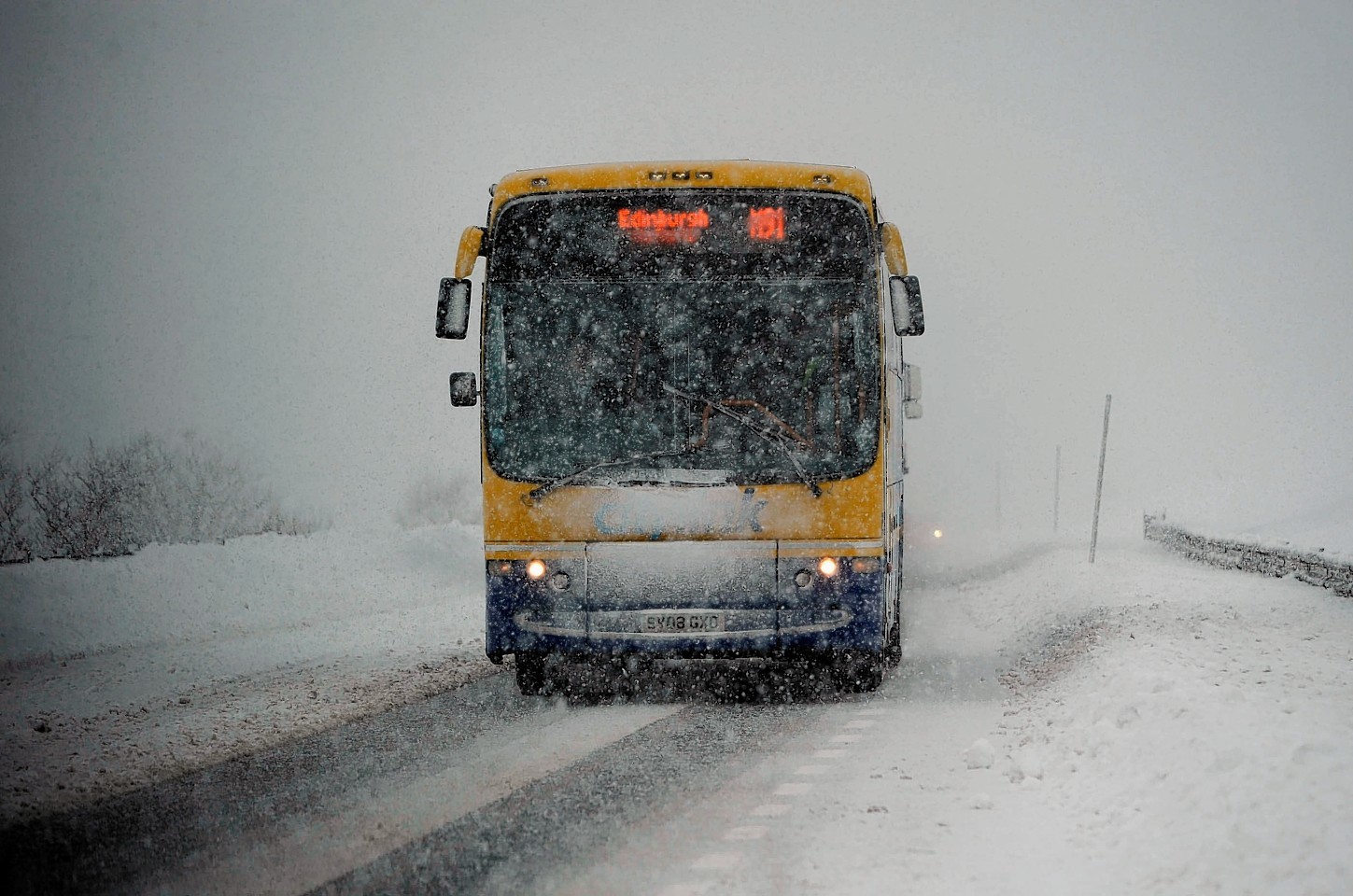Weather warnings remain in place as winter continues to hold the north in its grip.
The Met Office are warning about widespread ice overnight into this morning.
A second warning for gale force winds expired last night.
High winds were blamed for blowing another bus off an Argyll road, in an eerie parallel of an incident last week when a coach full of tourists came off the A83 at the Rest and Be Thankful and overturned, leaving 30 people injured, five seriously.
In yesterday’s incident a service bus, which was not carrying passengers, blew off the road at Barcaldine, north of Oban.
Oban Police said they did not require to close the road when the bus went off the road just after 1pm on the A828 Connel to Ballachulish road.
Sergeant Gary Brown said: “A bus was blown off the road by the wind. The driver was the only occupant. There were no injuries and no serious damage to the vehicle.”
Wintry showers were widespread across the north yesterday – with heavy snow down to relatively low levels.
Visitors to the Cairngorms National Park were able to enjoy snow at Glenmore, without having to venture into the high peaks.
However, the gale force winds caused yet more travel disruption, with ferry operator CalMac forced to cancel sailings to Armadale, Lismore, Coll and Tiree, Barra and a number of routes around Mull.
A yellow warning for gale force winds expired last night – but strong gusts are expected to continue today and could lead to blizzard conditions.
A yellow “be aware” warning is in place until 10am this morning for ice across the Highlands, while further snowfall could result in nearly 2in above 1,300ft.
A spokesman for the Met Office said: “A strong, cold northwesterly flow will bring bands of wintry showers to much of northern Britain through the next day or so, with overnight ice the main concern.
“During the day, March sunshine should mean that falling snow melts quite rapidly between showers, although some accumulations may still occur on the highest level routes.
“Overnight and at first on Wednesday, snow and hail is more likely to affect some untreated routes, even at lower elevations, compounding the ice risk.”
